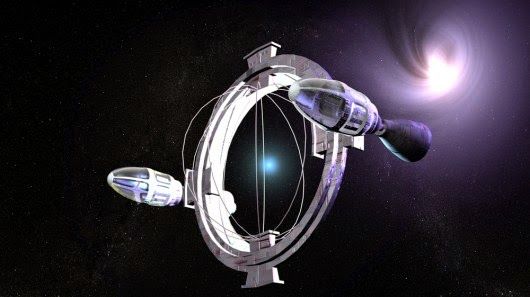Agreeing to state-of-the art theory, a warp drive might cut the travel time between stars from tens of thousands of years to only weeks or months. Harold G. White, a physicist and innovative propulsion engineer at NASA and other NASA engineers are working to regulate whether faster-than-light travel — warp drive — might soon be possible. The group is trying to some extent warp the course of a photon, altering the distance it travels in a definite area, and then detecting the change with a device called an interferometer.
In 1994, a Mexican physicist, Miguel Alcubierre, speculated that faster-than-light speeds were conceivable in a technique that did not deny Einstein by binding the growth and reduction of space itself. Under Dr. Alcubierre’s theory, a ship still couldn’t surpass light speed in a native region of space. But a theoretical thrust system he sketched out operated space-time by producing a so-called “warp bubble” that would inflate space on one side of a spacecraft and contract it on another.
Image source: With thanks to Shutterstock.com.
An Alcubierre Warp Drive expanses spacetime in a wave producing the material of space ahead of a spacecraft to contract and the space behind it to enlarge. The ship can ride the wave to go faster to high speeds and time travel. The Alcubierre drive, also famous as the Alcubierre metric or Warp Drive, is a mathematical model of a spacetime showing features suggestive of the fictional “warp drive” from Star Trek, which can move “faster than light”.









Is the belief in ‘time travel’ just a form of religion in the guise of ‘science’?